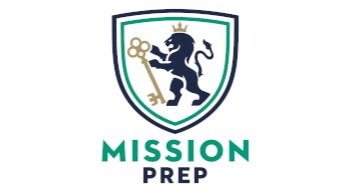Mission Prep Announces New Technology Dependence Diagnosis Matrix For Teens
The clinical team at Mission Prep, a residential care facility in Virginia which offers both inpatient and outpatient mental health care to adolescents, has developed a new diagnosis matrix for technology dependence.

Mission Prep has announced a new diagnosis matrix they have developed to tackle the rising problem of technology dependence among American teenagers aged 12 to 17.
More information is available at https://missionprephealthcare.com/programs/outpatient-mental-health-services/
National estimates from a variety of sources including national healthcare bodies, addiction centers and mental health facilities—like Mission Prep—suggest that between 40 to 70% of adolescents are now addicted or dependent on social media, with around 50% describing themselves as dependent on their smartphone. Thus, Mission Prep believes the mental health community must make quicker strides towards new forms of accurate diagnosis and new treatment plans.
As Michelle Murphy, the Clinical Director for the Virginia branch of Mission Prep explained, technology dependence looks different in every teen, presenting a challenge for diagnosis.
As such, their clinical team has developed a comprehensive new diagnostic matrix which integrates both one-on-one and family interviews with their team of experienced mental health professionals, self-reporting questionnaires and behavioral observations where their team will look for symptoms of dependence like withdrawal when not using technology.
As their team has seen that the condition is often concomitant with—or exacerbates—other thought and mood disorders, including depression, anxiety, and sleep disorders, they have also integrated this potential comorbidity into their new matrix.
Michelle Murphy said, “At Missions Prep, during our intake process, we now assess for technology dependence in teens, recognizing that technology is often a significant part of their lives. We examine how their use of technology impacts their sense of self, relationships, and overall well-being. Our approach is rooted in psychoeducation on the effects of technology on the brain, sleep, mood, and more.”
In the absence of severe concomitant mental health issues which require residential treatment, Mission Prep is also advancing new outpatient care plans for technology dependence. They believe outpatient care will best allow teenagers to learn coping techniques while maintaining their usual routines; they can implement newly learned strategies in real-world environments—such as at school, at home, or with peers—which helps to build confidence and resilience in their everyday lives.
Ms. Murphy added, “Our new program allows us to intervene in real-time to process and build resiliency skills and tools, and our goal is to empower teens to address their mental health while still living in the community, fostering long-term well-being and recovery. By creating a personalized and sustainable long-term care plan, we equip our clients to engage with technology effectively, empowering them to have enriched lives.”
About Mission Prep
Mission Prep aids teens confronting anxiety, depression, bipolar disorder, PTSD, adjustment disorders, and now technology dependence, through individualized treatment programs that evolve as they grow. They offer residential, inpatient and outpatient treatment plans and utilize both targeted, evidence-based therapeutic techniques and holistic wellness methodologies to best support the teens in their care.
For more information, visit https://missionprephealthcare.com/

